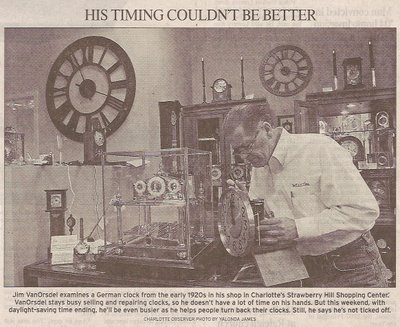A recent piece in Slate
bemoaned the decline in the "bus plunge" wire story. These are the short items on bus crashes in places such as Nepal and Pakistan. These briefs (sometimes just a sentence) used to litter the pages of The New York Times (as
seen here) and other U.S. newspapers. Here's a recent example of the format from the BBC site:
Police in the central Indian state of Madhya Pradesh say 56 people have been killed after a passenger bus plunged into a lake near the city of Rewa.
The Slate article brought back memories of my first job as a copy editor. It was at the News & Record in Greensboro, N.C., in the days before Quark and InDesign. The copy desk edited stories, wrote heads and cuts, and laid out pages. The design desk did not exist, and the composing room was a hub of activity.
On the rim, our first duty of the day was to edit and write headlines for "wild briefs" -- short wire stories that could be used as last-minute fillers if a "real" story came up short. These briefs were of the "bus plunge" variety, usually about some calamity in a distant land. Ferry sinkings in places such as Indonesia and India were also common material. Sometimes we would put together some "wild obits" in case they were needed to fill space on the obit page. We would write two or three headlines for each one to add to their utility to fill gaps on deadline.
The wild briefs would then be sent to the composing room and put on the board above each page. As deadline approached and that late local copy came in, the composing room would notch in the wild briefs in any remaining spaces, typically on jump pages. It was taboo for newsroom people to touch type, but we could offer guidance on which wild brief to use. This led tojuxtapositions: At the end of the jump on the story about the school board's meeting, a reader would see that 16 people had been killed in a mudslide in Peru. Most of the wild briefs would be replaced with local cop briefs by the final edition, however.
Years later, I visited India, and my trip included several long-distance bus rides. The faraway stories of the wild briefs became an up-close reality. With every manner of vehicle on India's poorly maintained roads, a bus ride can be a harrowing experience. It's no wonder that these stories are so plentiful. I survived the journeys without incident, although I still have flashbacks to the moment when our bus was speeding through the foggy countryside in the dead of night.
When composing rooms died, so did wild briefs. Page designers can usually fill leftover spaces with quote blocks, subheads and other devices. Yet, as the Slate article points out, the "bus plunge" stories still have their fans. Sure, you can find them with Google News, or even visit
this site, which tracks the latest bus plunges. But the random nature is gone.













